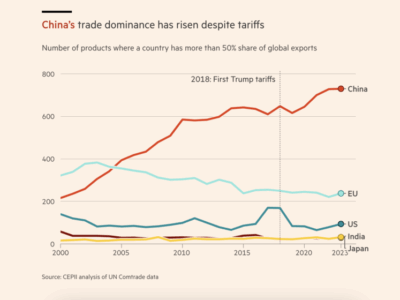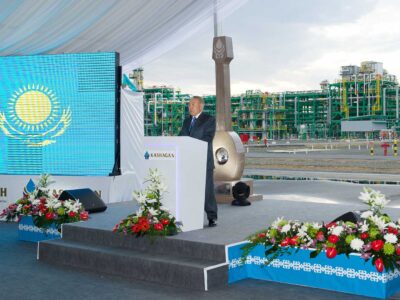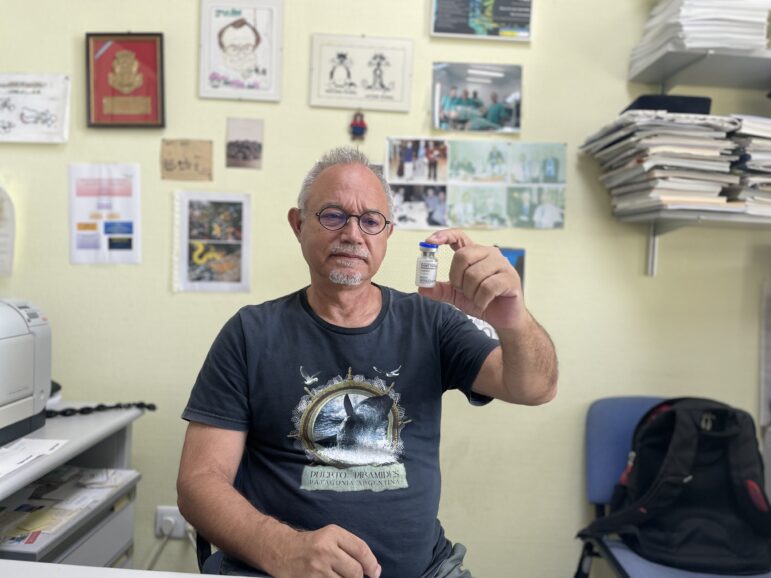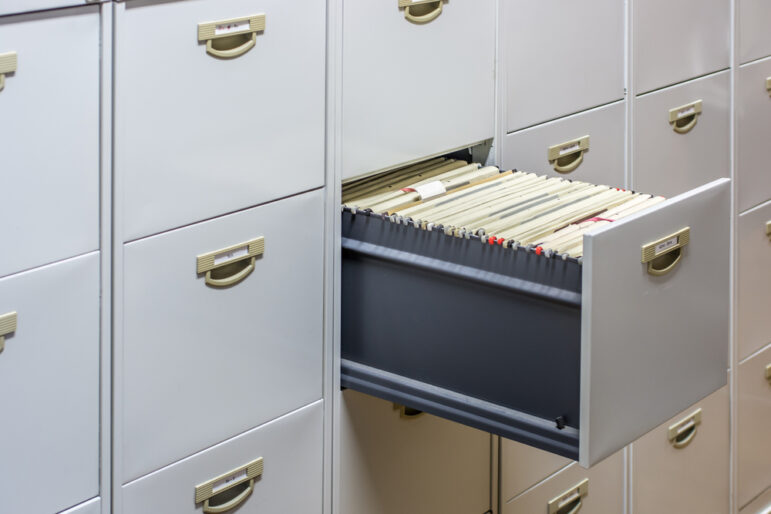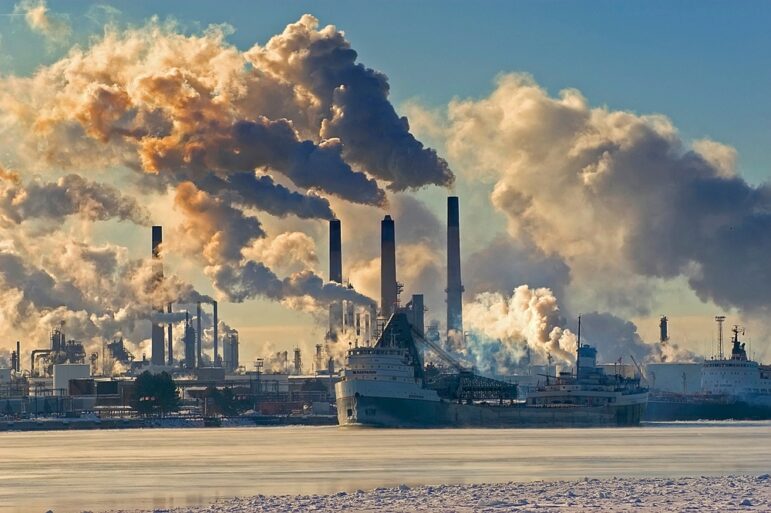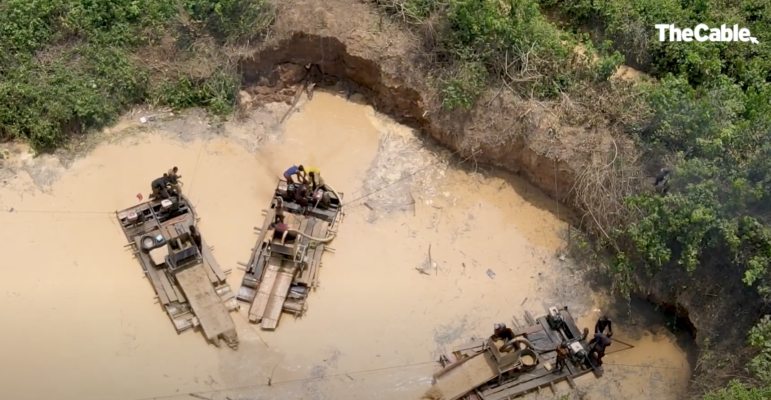
Nigerian investigative journalist and documentary filmmaker Anu Adelakun grew up in the bustling city of Lagos, where access to clean water was scarce for many communities.
Fetching water wasn’t considered a sign of poverty, she explains: “It was a shared experience: in the evenings, along with friends, we would take our small buckets and walk to fetch water from a well down the street.”
But for many, fetching water is not a nostalgic childhood memory, but a matter of survival. A particular place caught Adelakun’s attention in 2016: Makoko, a large, informal settlement built partly on stilts on Lagos’ lagoon, where residents navigate the canals by canoe. Home to an estimated 85,000 to 100,000 people, Makoko has been dubbed the world’s biggest floating slum.
“Despite living on and around water, the residents had no access to clean water unless they purchased it from private boreholes,” Adelakun says. “For such a marginalized population, it was akin to asking them to buy the air they breathe.”
The experiences of Makoko residents inspired Adelakun to create a short documentary about the issue. But when the Bertha Foundation announced a fellowship program for journalists and activists focusing on exposing the politics and corruption behind water scarcity and the depletion of freshwater bodies, she saw it as an opportunity to tell the water stories she had long wanted to.
“Water scarcity is a harsh reality in Nigeria and many parts of the world, even in some developed regions,” she says. “Growing up in Lagos, I was aware of the existence of water corporations, but uninterrupted access to clean water was something I rarely experienced, sometimes going almost a year without it.”
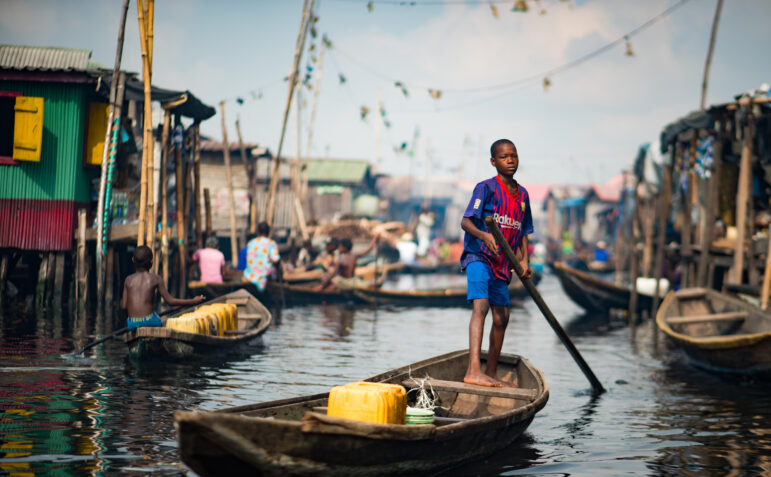
A young boy rows a canoe in the Makoko “stilts village” informal settlement in Lagos, Nigeria. Image: Shutterstock
‘Not Just a Collection of Talking Heads’
After being selected for the Bertha Foundation fellowship, Adelakun started the painstaking process of producing a three-part documentary on Nigeria’s water crisis that exposed the connections between water, politics, corruption, and the impact on people and the environment.
“A lot of research, pre-production community engagement, peer review, and technical input on the scientific pointers and the filmic aspect of the investigation preceded the actual fieldwork,” says Adelakun. She did not want to produce “a collection of talking heads and statistics,” she explains. “I wanted the audience to connect with the story on a deeper level, and humanize the statistics they read about in the news.”
She had a lot of support from the Bertha Foundation team, especially with funding, she says, and the Cable Newspaper Journalism Foundation, where she worked at the time as director of video production, was her host organization for the fellowship year. “Their in-house investigative team did some deep work challenging the idea and advising feasibility, so I was well-supported,” she says. “I also had a small crew that was as ‘crazy’ as I was and ready to plunge into the bushes or go undercover with me depending on what situations demanded.”
Her field work spanned almost a year, but the desktop research kicked off five months before her first reporting trip. “My primary medium of reportage was documentary, so I ensured a tidy protocol with rushes, several backups, and proper documentation on the field and afterwards,” she says.
“I let the story lead me in that it was exploratory, [so] I had to keep a personal diary recording my highlights of each day on the field and note seemingly mundane details, as they would eventually matter. I already knew I wanted the documentary to be immersive and my approach to the field work made room for the factors that would eventually make it so by the time we began to edit.”
She adds: “I also employed journalistic tools such as objective questioning, accessing public records, geolocation, and satellite tools, social media, past academic papers on the subject matter, and interviews with local whistleblowers and activists.”
The Water Manifesto
Adelakun’s final project, titled “The Water Manifesto,” examined the dynamics behind pollution, failed government water projects, and the lack of access to clean water for most of Nigeria’s more than 200 million people.
“I chose to make a docu-series, because even though the issue of water paucity is central, the stories are unique as one travels across Nigeria,” she says. “I wanted to be able to give each story an opportunity for in-depth exploration, with the aim of not only producing a journalistic piece of work, but to give the community a tool they can use for their advocacy down the line, should they want to.”
The first episode of the three-part documentary premiered in December 2022, and the other two were released in January and February 2023.
Episode one focused on the illegal gold mining in southwest Nigeria that has polluted the Osun River. The river, which has great cultural and religious significance, originates in Igede-Ekiti and flows into the Atlantic Ocean almost 300 miles away. It also supports more than three million people, two state water corporations, and two major beverage companies.
Adelakun explains that a lot of the illegal mining is carried out by artisanal miners, who need the pressure of the river’s flowing water to separate the gold ore from mud. “They release heavy metals into the water body and over time, that becomes more potent in the water beyond WHO recommendations,” she explains. “The episode showcased the supply chain in the illegal business, and through scientific water tests, demonstrated the environmental devastation of the ecosystem.”
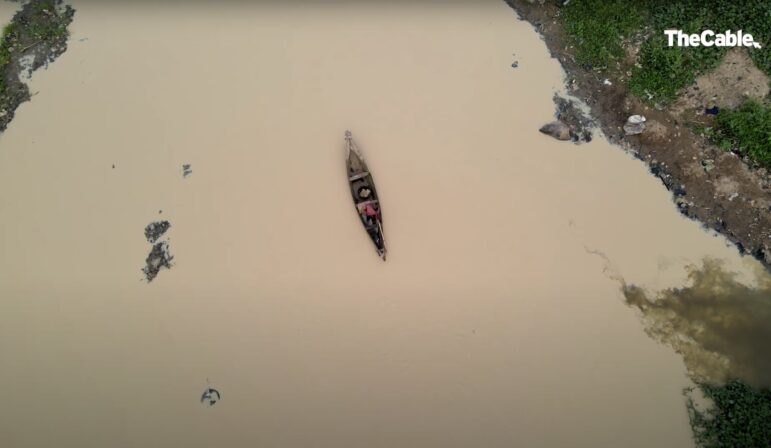
Drone footage of the polluted Osun River in Nigeria’s southwest. Image: Screenshot, TheCable, The Water Manifesto
Adelakun used a time-lapse analysis of satellite imagery to show that mining activity became visible around the year 2020, and used drone footage to provide images of river pollution and evidence of mining sites. She asked locals venturing deep into the forest to collect water from supposedly ‘clean’ wells to film the terrain with their phones and to bring back water samples for testing. She and her crew also witnessed and documented how some miners — some locals as well as a Chinese national — were arrested by Osun government officials, only to subsequently escape in a van, apparently in collusion with a mysterious security task force that seemed to be protecting the miners.
Episode two focused on the abandoned Ivo Dam project in Enugu State in southeastern Nigeria, where, for more than a decade, misappropriated funds have left behind a structure in ruins that allows heavy rainfall to spill over, contributing to the annual flooding of over 40,000 acres of rice and okra farms and the displacement of residents. The episode highlighted that many communities nearby have not had access to clean water in about 20 years. Adelakun traversed the state to interview those affected by flooding, lost farms, and livelihoods, examined public records and funds allocated to the project, and investigated how corrupt officials have exploited the lack of clean water provision by building a “lucrative business” around a major water supply scheme in the state.
Episode three goes into the heart of Abuja, Nigeria’s capital city, where communities house several broken-down borehole projects. “We looked at this within the context of the annual cholera outbreak in the city, and the pointers that show that the issue is not about to slow down if drastic water supply and hygiene measures are not sustained,” she explains.
Adelakun reported to two editors: Pearlie Joubert, the fellowship coordinator and program manager who functioned as the supervising editor, and Kolapo Olapoju, an editor at TheCable, who regularly checked on the progress of the project.
“From the point of ideation to execution, we were largely involved in terms of helping with clarity and the direction of the investigation,” Olapoju explains. “When there were challenges with access or issues that came up in the field, we would always step in to support. It was a situation where she carried me along and she got all the necessary feedback that she needed.”
“I got very remarkable support from both teams and it played a large role in the success of the project,” says Adelakun.
The documentary was premiered first to a private audience of journalists and water activists during a water reporting summit that Adelakun organized in December 2022. Shortly after, it was published on TheCable’s website and subsequently the Nigerian Television Authority, the national broadcaster, which went on to show it to almost 25 million viewers cumulatively over one year.
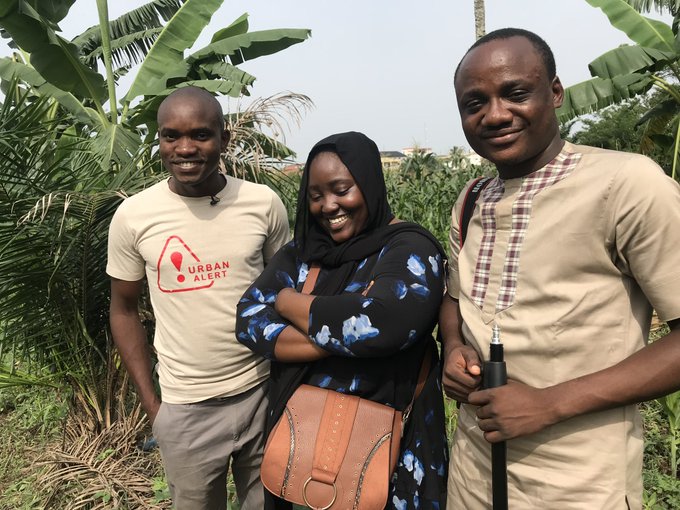
Anu Adelakun and her local producers/fixers during the field investigation. Image: Courtesy of Anu Adelakun
‘Ripple Effects’
Adelakun says that the impact of the water crisis investigations “exceeded expectations.” Olapoju adds: “The ripple effects of the story’s outcome were beyond what we envisaged. There were a lot of reactions and feedback.”
Within 24 hours of the first episode being aired, she says that the Osun State government dissolved the corrupt task force that had been protecting the gold miners and announced plans to begin to clean the polluted Osun River. Two years down the line, Adelakun says the cleanup project has been now officially launched.
Nigeria’s Ministry of Solid Minerals Development invited Adelakun to a national stakeholders meeting, where she made recommendations on how their already existing task force could be strengthened to curb illegal mining. “Efforts are underway and I continue to monitor this,” Adelakun says.
Two weeks after the second episode was published, federal lawmakers raised the issue of completing the dam, and an audit was launched by Nigeria’s House of Representatives Committee on Water Resources.
Adelakun adds that a new World Bank project to complete and rehabilitate dams that have irrigation and hydropower projects attached to them has been recently approved and “fingers are crossed for its completion.”
The project won the 2023 Society of Environmental Journalists Kevin Carmody Award for Outstanding Investigative Reporting. The documentary also earned a 2024 nomination for the Africa Magic Viewers’ Choice Awards in the Best Documentary category and was recently screened at the 2024 Oswaldo Cruz Foundation ‘Fiocruz’ Award at the International Environmental Film and Video Festival (FICA) in Goias, Brazil.
Braving Bullets
The success of the documentary came with challenges; Adelakun has faced threats and security risks: “It was a double jeopardy play for me… as a female journalist, and working in Nigeria where journalists are intimidated, kidnapped, and even murdered,” she says.
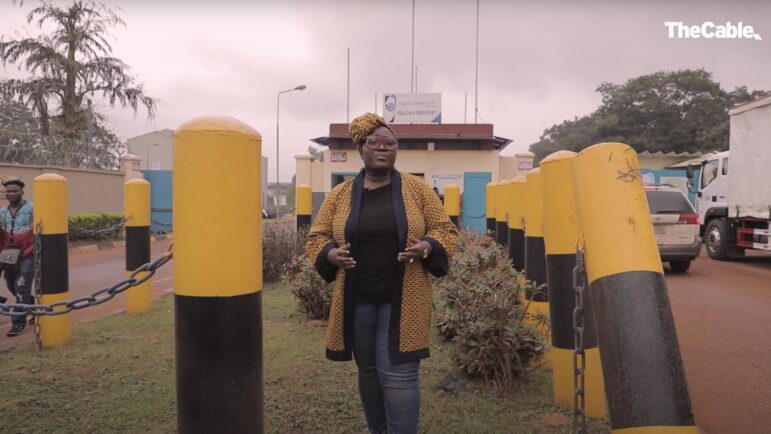
Anu Adelakun reporting in the field. Image: Screenshot, TheCable, The Water Manifesto
She recalls an encounter during one of the reporting trips with the security task force who were on a raid to arrest illegal gold miners in a forest. “We were waylaid by police officers who shot at our convoy, accusing us of being kidnappers,” she says. “It was an ugly experience, and my crew and I had to lay low for some weeks afterwards for our safety.”
“One thing that has stood the test of time and remains with me is the fact that as journalists, we must put in the effort, research, and technical contexts required to establish sound and objective stories,” she adds.
“A good story in Nigeria is a good story in the North Pole. Pursue objectivity with quality and don’t be afraid to tell the stories that matter. If we don’t tell these stories, who will? And if not now, then when?”


